Probiotics are often seen as a solution for gut health problems, but many people experience worse symptoms when they first start taking them. This seemingly contradictory response can be confusing if you're seeking relief from digestive issues. At BioPhysics Essentials, we understand this paradox and want to explain why this happens, especially if you have dysbiosis (an imbalance in your gut bacteria).
When you introduce beneficial bacteria to an already compromised digestive system, a period of adjustment is normal and expected. Our MicroBiome Restore™ supplement, with 26 diverse probiotic strains and 9 organic prebiotics, is designed to support this transition and ultimately lead to improved gut health.
Key Takeaways
Understanding Probiotics and Initial Discomfort
- Temporary bloating and gas during the first 1-2 weeks is normal when starting probiotics
- Microbial adjustment in the gut causes initial discomfort, especially with dysbiosis
- Symptoms typically improve after 4 weeks as the microbiome stabilizes
- High-quality probiotic strains like Lactobacillus acidophilus and Bifidobacterium lactis are effective for gut health
- Starting with lower doses and gradually increasing can minimize initial side effects
Why Probiotics Initially Cause Digestive Symptoms
Microbial Adjustment in the Gut Ecosystem
When you introduce new probiotic bacteria into your digestive system, especially if you have dysbiosis, your gut undergoes a significant adjustment period. This microbial restructuring is similar to ecological succession in nature – as beneficial bacteria establish themselves, they can temporarily increase gas production and cause bloating.
The strains in our MicroBiome Restore™ supplement, including Lactobacillus acidophilus and Bifidobacterium lactis, begin competing with existing microbes for resources and territory in your intestinal tract. This competition is ultimately beneficial but can create temporary discomfort as your gut ecosystem recalibrates.
Prebiotic Fermentation and Gas Production
Many high-quality probiotic supplements, including our MicroBiome Restore™, contain prebiotic fibers that feed beneficial bacteria. These prebiotics, such as inulin and fructooligosaccharides (FOS), undergo fermentation by gut bacteria, which can temporarily increase gas production and bloating.
This fermentation process is essential for the growth of beneficial bacteria but can cause discomfort during the initial adjustment period. The 9 organic prebiotics in our formula support the establishment of a healthier microbiome while providing the necessary nutrition for probiotic strains to thrive.
Impact of Underlying Gut Conditions
Individuals with pre-existing gut conditions such as Irritable Bowel Syndrome (IBS), Small Intestinal Bacterial Overgrowth (SIBO), or inflammatory bowel diseases may experience more pronounced initial symptoms when starting probiotics. These conditions often involve heightened sensitivity to changes in the gut environment.
Our Gut Essentials Protocol is specifically designed to address these underlying conditions by combining our probiotics with mineral support. This comprehensive approach helps manage the transition period more effectively for those with sensitive digestive systems.
Timeline of Probiotic Adjustment for Dysbiosis Patients
Understanding the typical timeline of adjustment to probiotics can help manage expectations and encourage persistence through initial discomfort. Based on clinical research and customer feedback, we've outlined the common phases people experience when starting our MicroBiome Restore™ supplement.
Timeline of Probiotic Adjustment for Dysbiosis Patients
Typical progression of symptoms and improvements when starting MicroBiome Restore™ supplement
| Phase | Duration | Symptoms | Explanation | Status |
|---|---|---|---|---|
| Initial | Days to 1-2 Weeks | Bloating, gas, mild digestive discomfort | Gut microbiome adjusting to new bacterial strains; prebiotic fermentation may extend discomfort | Caution |
| Adjustment | 1-4 Weeks | Gradually decreasing bloating and gas | Microbiome begins to stabilize; beneficial bacteria establish colonies; side effects begin to subside | Improving |
| Improvement | After 4 Weeks | Reduced bloating, improved digestion, more regular bowel movements | Balanced microbiome reduces inflammation; beneficial bacteria produce anti-inflammatory compounds | Good |
| Long-term | Ongoing | Sustained gut health, improved nutrient absorption, stronger immune function | Continued probiotic use prevents dysbiosis recurrence and maintains gut barrier integrity | Excellent |
Individual results may vary. Consult with a healthcare provider for personalized advice.
Initial Phase (Days to 1-2 Weeks)
During the first few days to two weeks of taking probiotics, many individuals experience increased bloating, gas, and occasional changes in bowel movements. This is especially common in those with pre-existing dysbiosis, as the introduction of beneficial bacteria creates temporary disruption in the gut ecosystem.
Our MicroBiome Restore™ contains fermented capsules and organic prebiotics that support this initial colonization phase. While these ingredients are essential for long-term benefits, they can contribute to temporary gas production as your gut adjusts.
Adjustment Phase (1-4 Weeks)
As you continue taking probiotics for 1-4 weeks, most people notice a gradual decrease in bloating and gas. During this phase, the microbiome begins to stabilize as beneficial bacteria establish colonies and create a more balanced environment. The initial side effects typically begin to subside as your gut adapts to the new microbial composition.
Our Gut Essentials Protocol, which combines MicroBiome Restore™ with X-Cellerator™ Full Spectrum Minerals, provides additional support during this critical adjustment phase by enhancing mineral absorption and supporting proper digestive function.
Scientific Evidence Supporting Probiotic Benefits Despite Initial Discomfort
While initial discomfort may discourage some from continuing with probiotics, substantial scientific evidence supports their long-term benefits for gut health, particularly for those with dysbiosis. Understanding this research can help provide context for the temporary symptoms you might experience.
Clinical Studies on Probiotic Efficacy for Bloating
A comprehensive 2018 review found that probiotics reduced bloating in 8 out of 15 studies focusing on Irritable Bowel Syndrome. Specifically, a 2011 study demonstrated that Lactobacillus acidophilus NCFM® and Bifidobacterium lactis Bi-07® (strains included in our MicroBiome Restore™) significantly reduced bloating after the initial adjustment period.
Additionally, a 2018 study focusing on Bifidobacterium lactis HN019 showed improved constipation symptoms and overall gut function in participants who continued probiotic use beyond the initial adjustment phase.
4+ Weeks
Typical timeframe needed to observe significant improvements in gut symptoms
8 out of 15 IBS Studies
Showed reduced bloating with continued probiotic use after initial adjustment period
Enhanced Barrier Function
Probiotics strengthen intestinal barriers, reducing inflammation and discomfort
Lactobacillus & Bifidobacterium
Strains specifically linked to decreased bloating and improved gut comfort
Practical Tips for Minimizing Initial Probiotic Discomfort
While some initial discomfort is normal when starting probiotics, especially for those with dysbiosis, several strategies can help minimize these symptoms and make the adjustment period more manageable.
Start with Lower Doses and Gradually Increase
One of the most effective ways to reduce initial bloating is to start with a lower dose of probiotics and gradually increase over time. This allows your gut microbiome to adjust more gradually to the new bacterial strains.
With our MicroBiome Restore™, you might consider starting with one capsule every other day before working up to the recommended daily dose as your body adjusts.
"I started with half the recommended dose of MicroBiome Restore for the first week and experienced minimal bloating. By week three, I was taking the full dose and noticing significant improvements in my digestion and overall gut comfort."
Choose the Right Probiotic Strains for Your Condition
Different probiotic strains have varying effects on gut symptoms. For those prone to bloating, research suggests that Lactobacillus acidophilus and Bifidobacterium lactis (both included in our MicroBiome Restore™) are particularly effective at reducing gas and bloating after the adjustment period.
Our formula also includes soil-based organisms like Bacillus coagulans, which have been shown to produce fewer initial side effects while still providing significant gut health benefits.
Maintain Adequate Hydration and Consider Dietary Adjustments
Staying well-hydrated can help minimize constipation and support the body's ability to process gas. Additionally, temporarily reducing high-FODMAP foods (fermentable carbohydrates that can increase gas production) during the initial probiotic adjustment period may help reduce bloating.
Our X-Cellerator™ Full Spectrum Minerals can be added to water to enhance hydration while providing essential trace minerals that support digestive function during the probiotic adjustment phase.
Discover how our mineral supplements can enhance your probiotic experience
Conclusion: The Long-Term Benefits Outweigh Initial Discomfort
When starting probiotics like our MicroBiome Restore™, it's important to understand that temporary discomfort is often part of the path to improved gut health, especially for those with dysbiosis. The initial bloating and gas typically last from a few days to two weeks, with gradual improvement over 1-4 weeks and significant benefits becoming apparent after 4 weeks of consistent use.
The scientific evidence strongly supports the long-term benefits of probiotics for gut health, despite initial adjustment symptoms. By understanding this timeline and implementing strategies to minimize discomfort, you can successfully navigate the adjustment period and experience the full benefits of a balanced microbiome.
Our MicroBiome Restore™ and Gut Essentials Protocol are specifically formulated to support this transition period and provide comprehensive gut health benefits. With 26 diverse probiotic strains, 9 organic prebiotics, and essential minerals, these products offer a holistic approach to restoring gut balance and function.
Remember that individual responses to probiotics vary based on factors like existing gut health, diet, and lifestyle. While we've outlined typical timelines and experiences, your personal journey may differ. We always recommend consulting with a healthcare professional for personalized guidance, especially if you have underlying health conditions or persistent symptoms.
Start your journey to improved gut health with MicroBiome Restore™ today
Restored Microbial Balance
Achieve a diverse, balanced gut microbiome that supports optimal digestion and immune function
Improved Gut Barrier Function
Strengthen intestinal lining to prevent leaky gut and reduce systemic inflammation
Enhanced Nutrient Absorption
Support proper breakdown and absorption of nutrients for improved energy and overall health

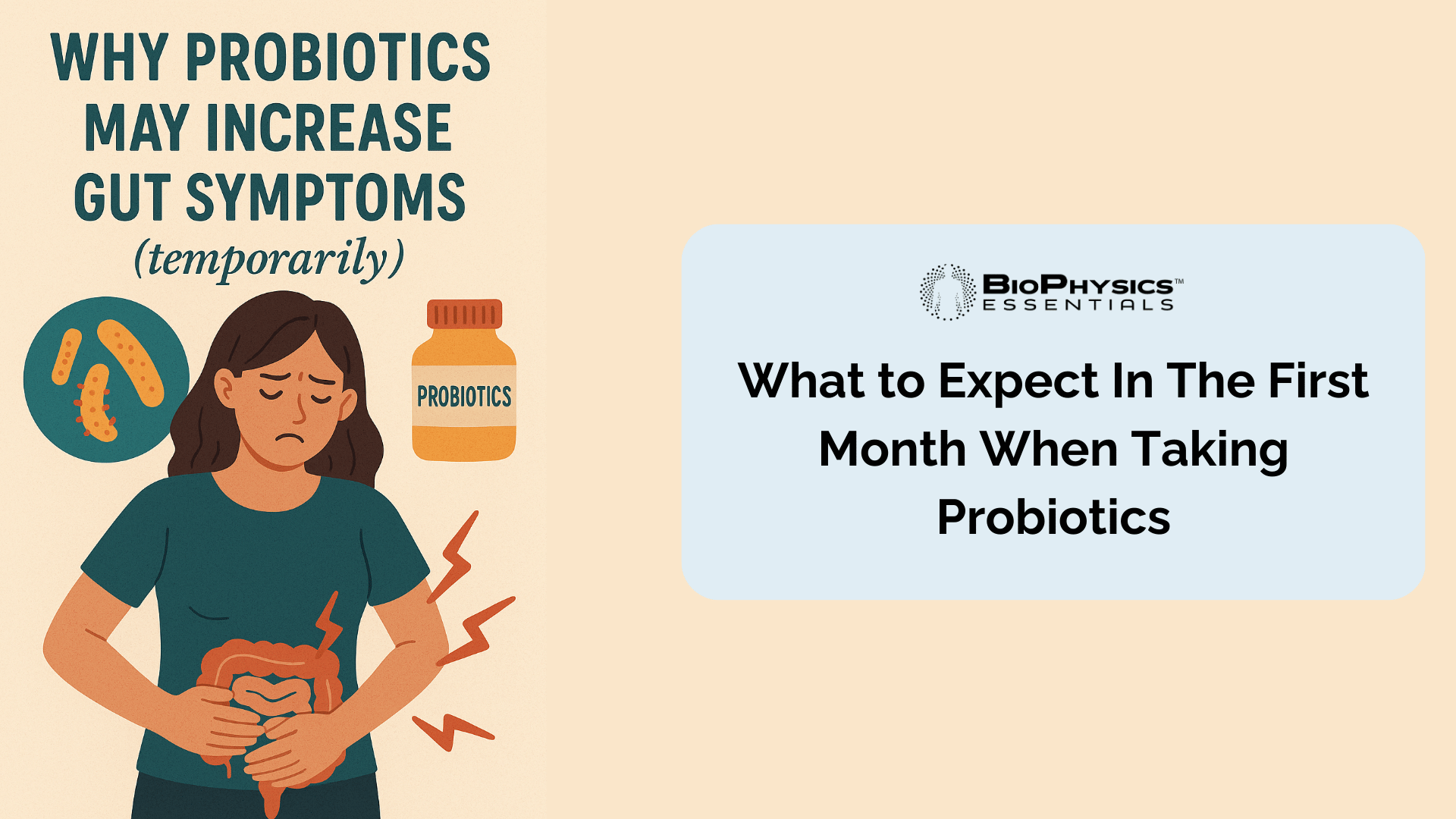
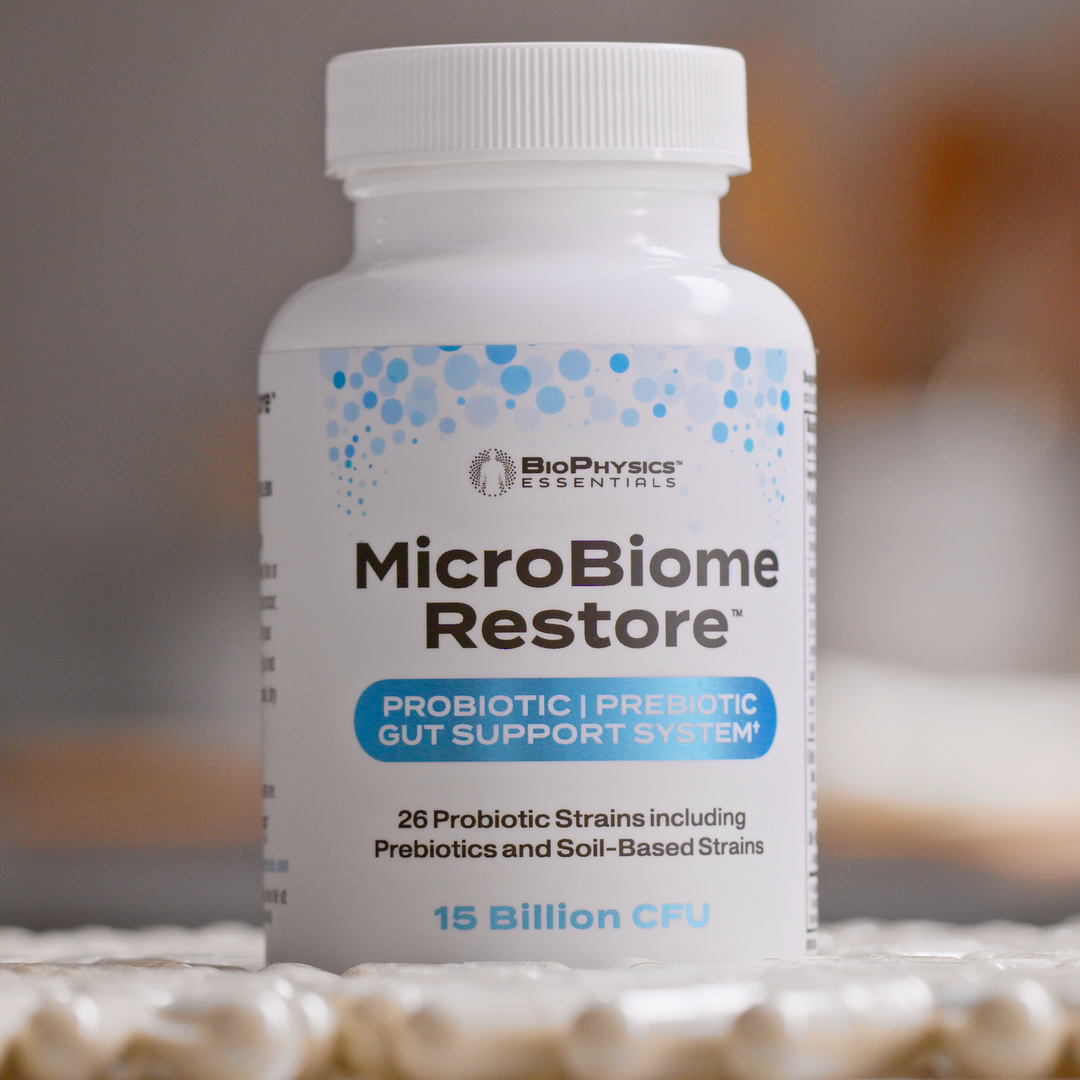

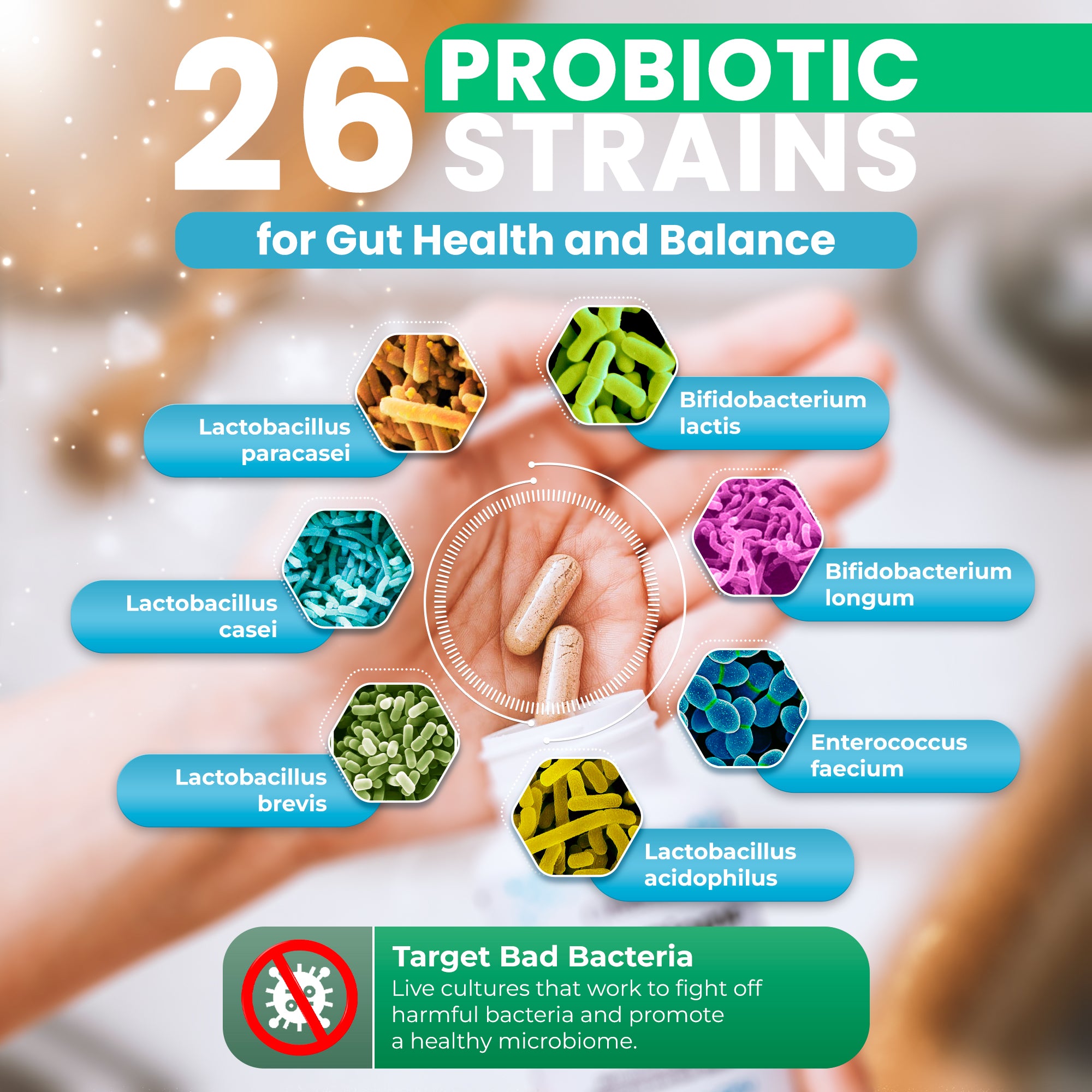

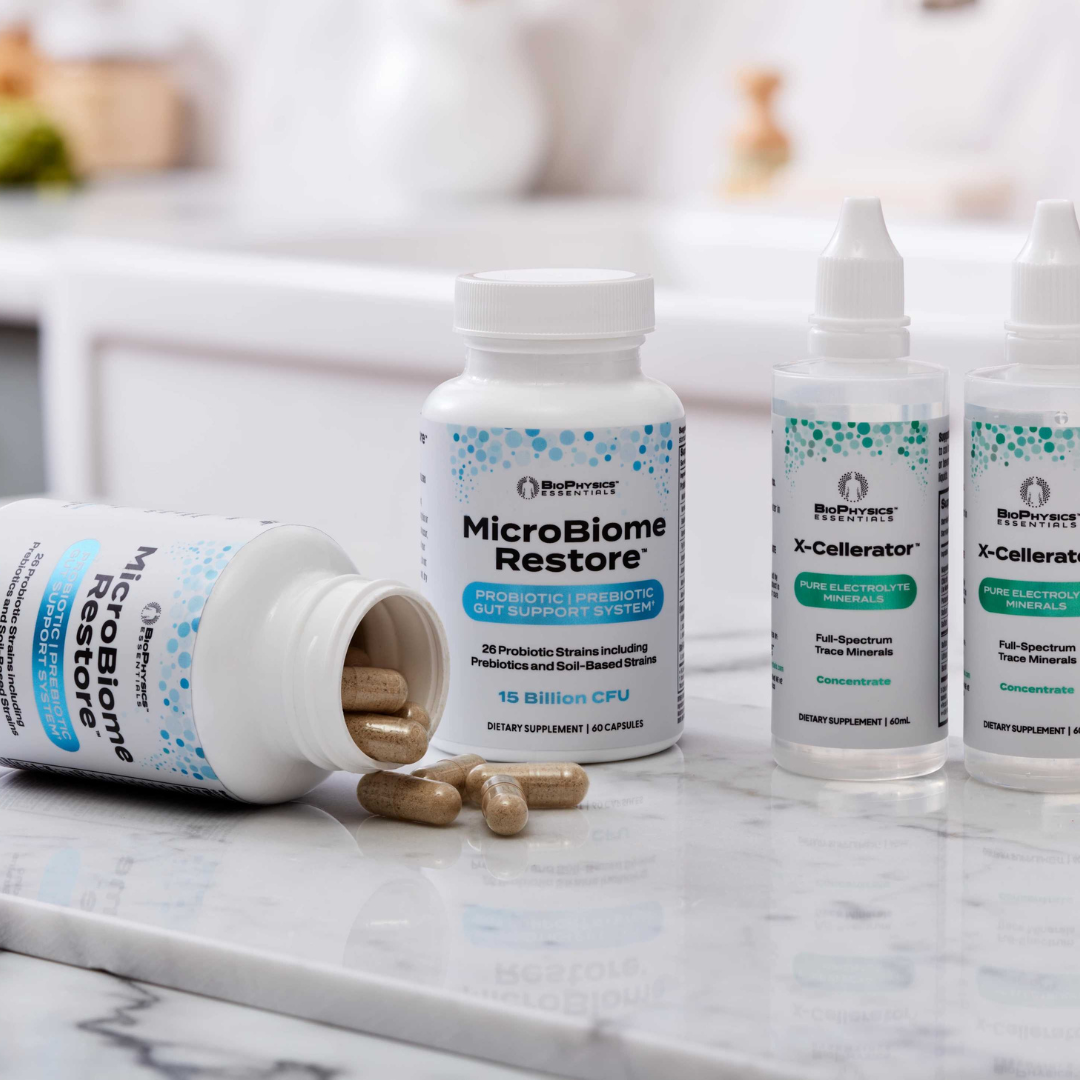
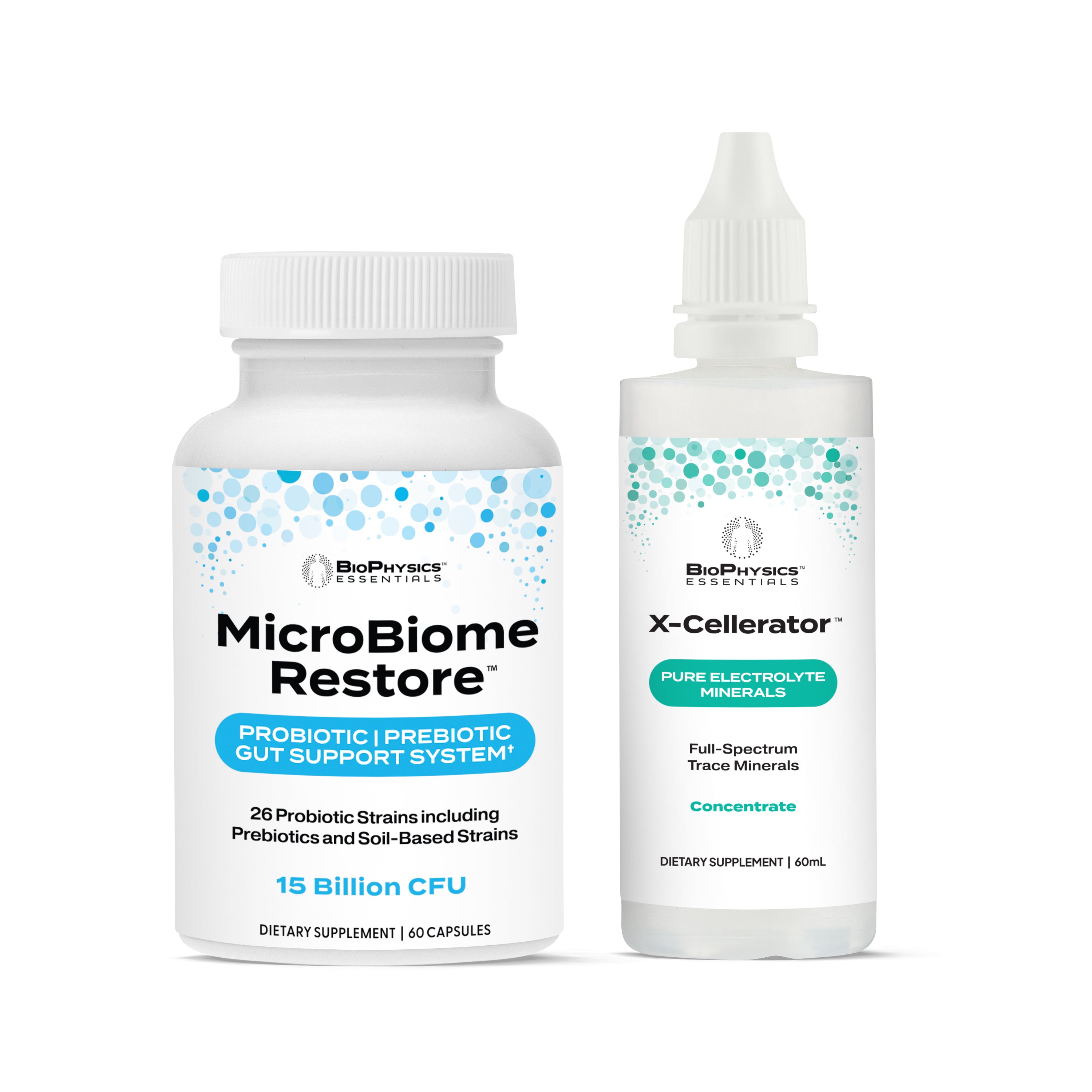
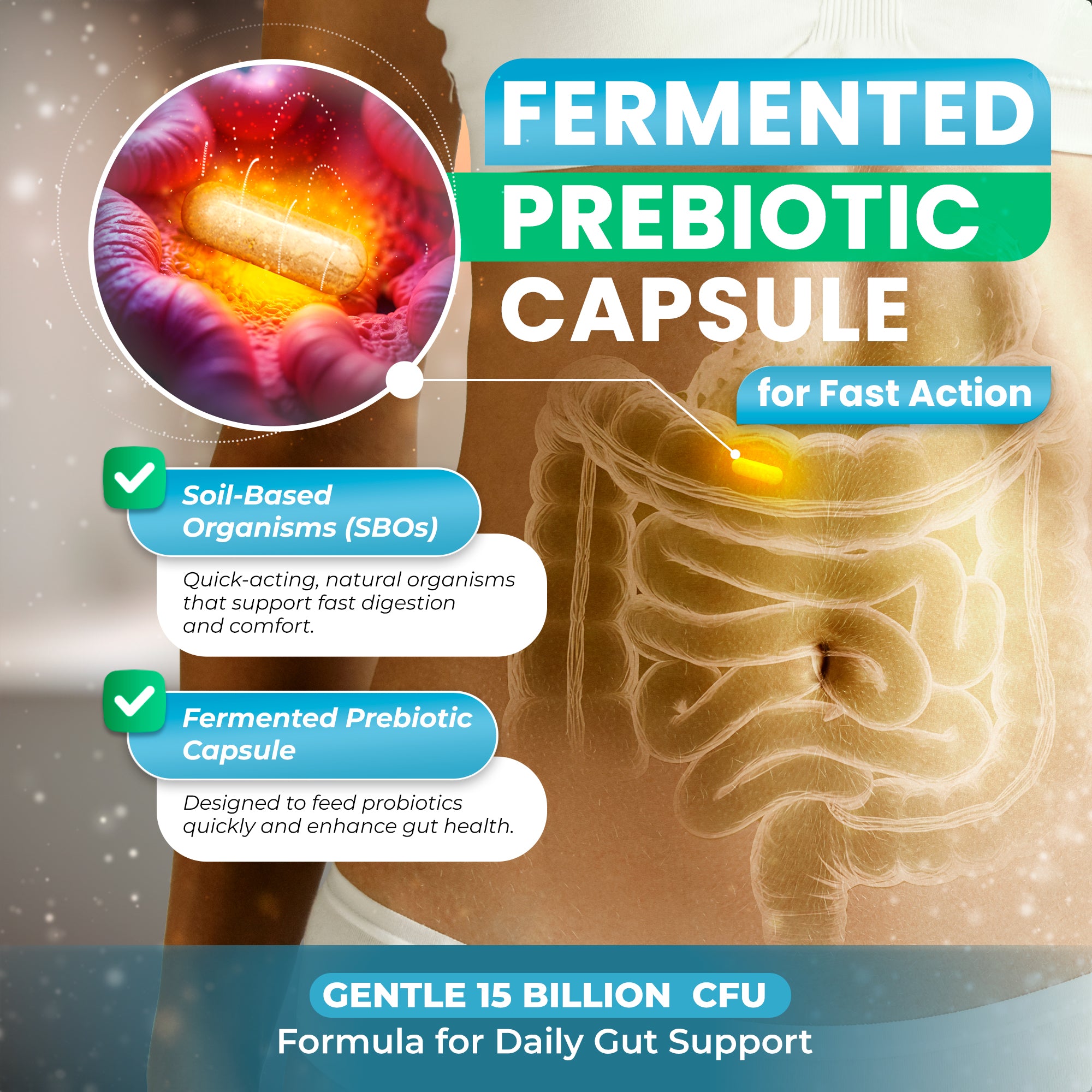
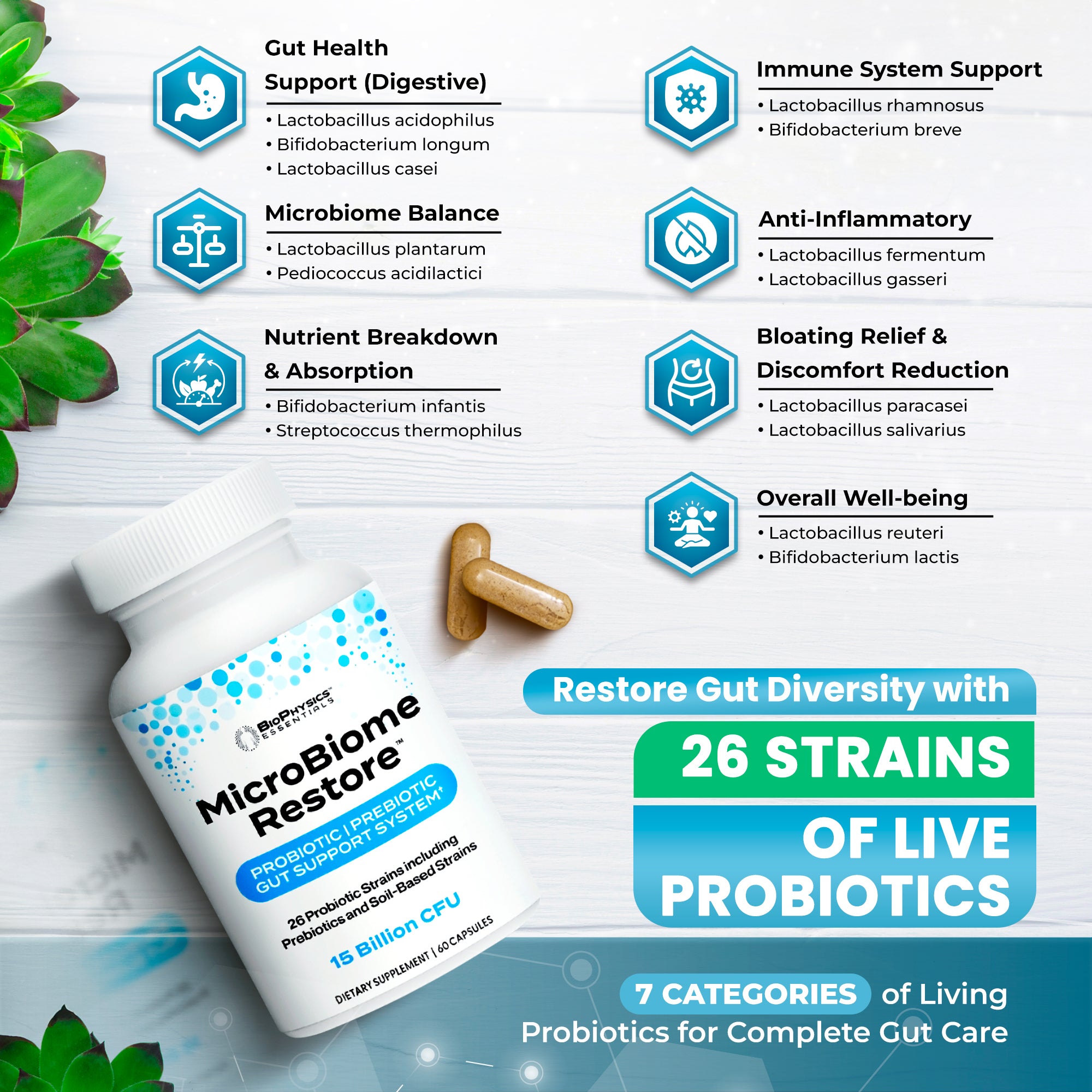
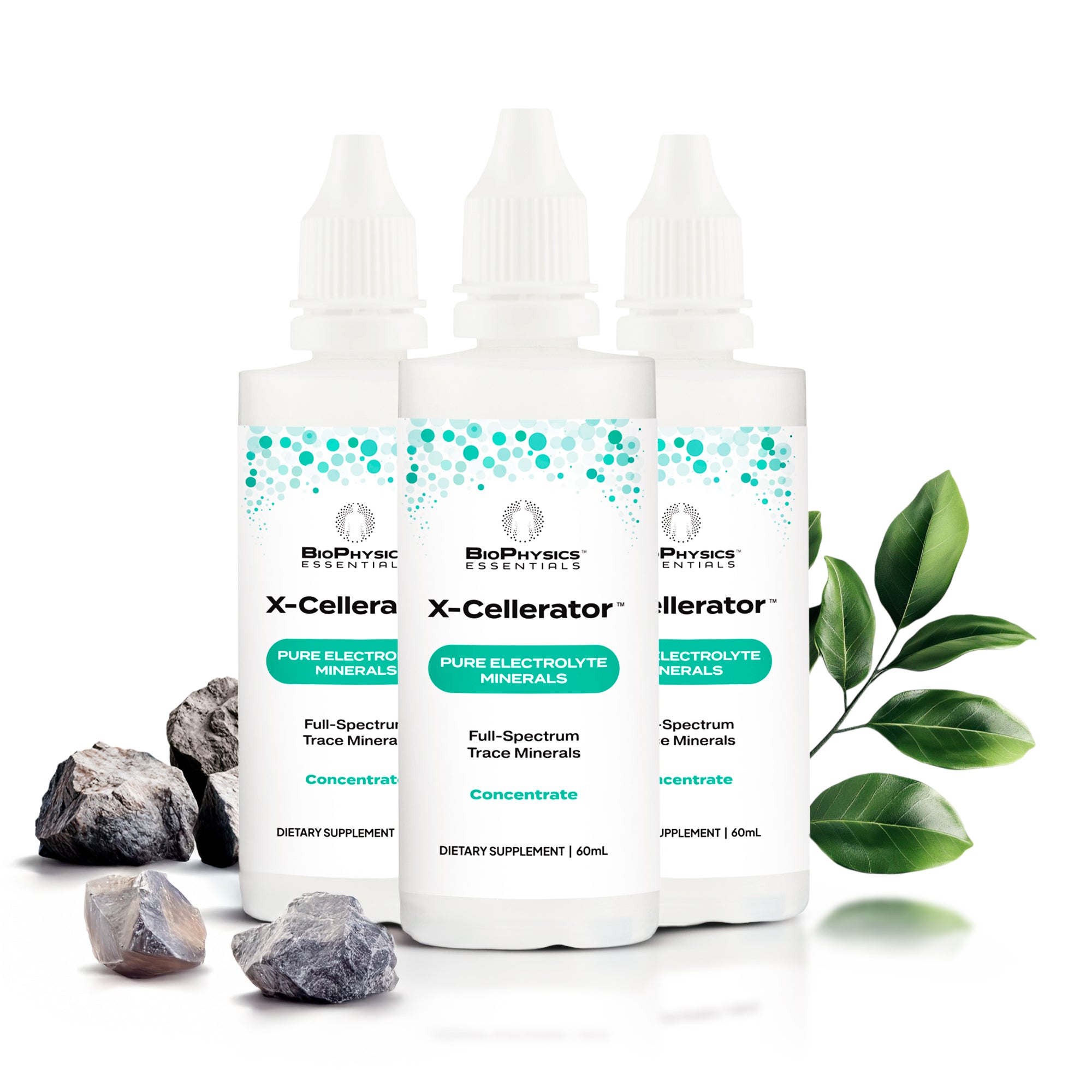
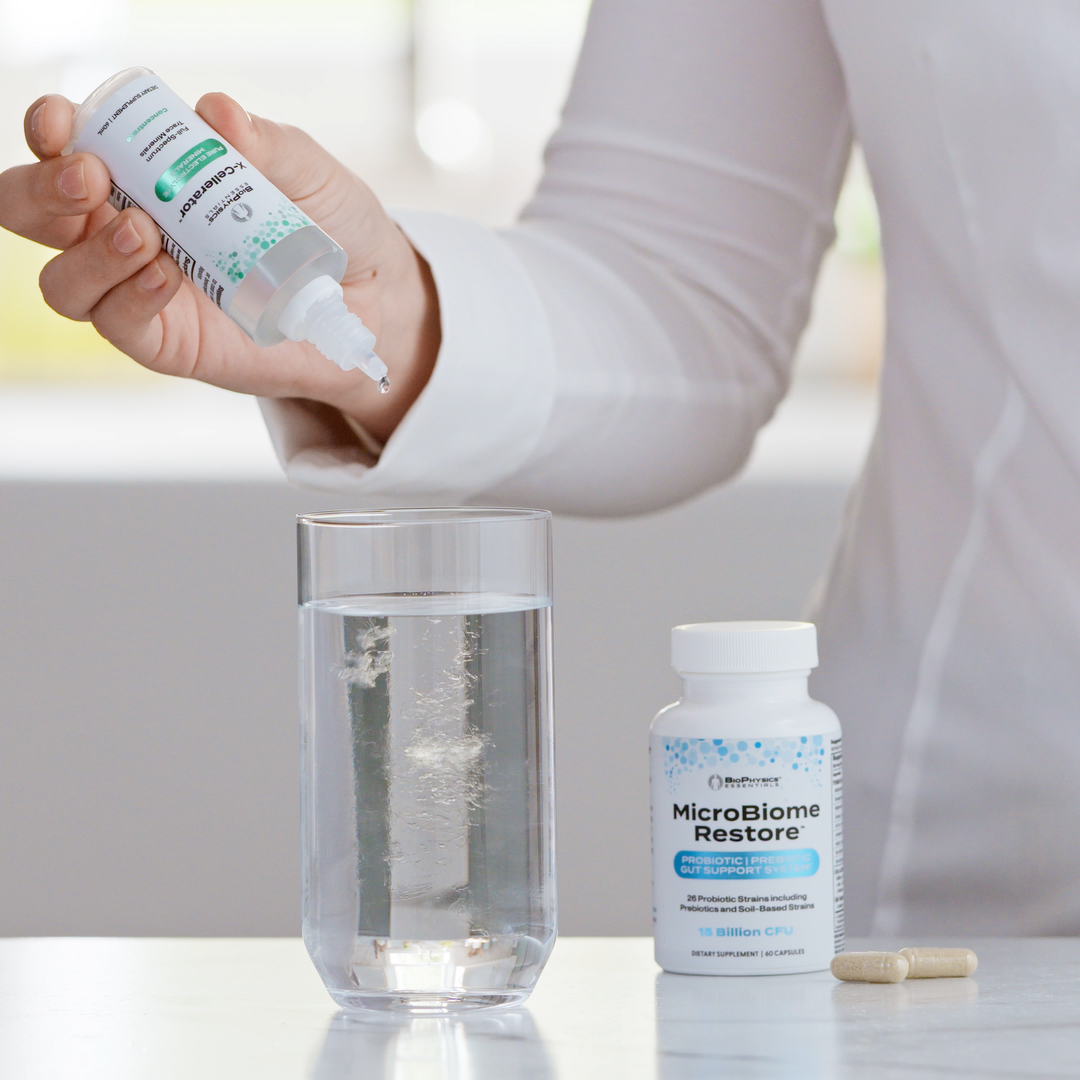
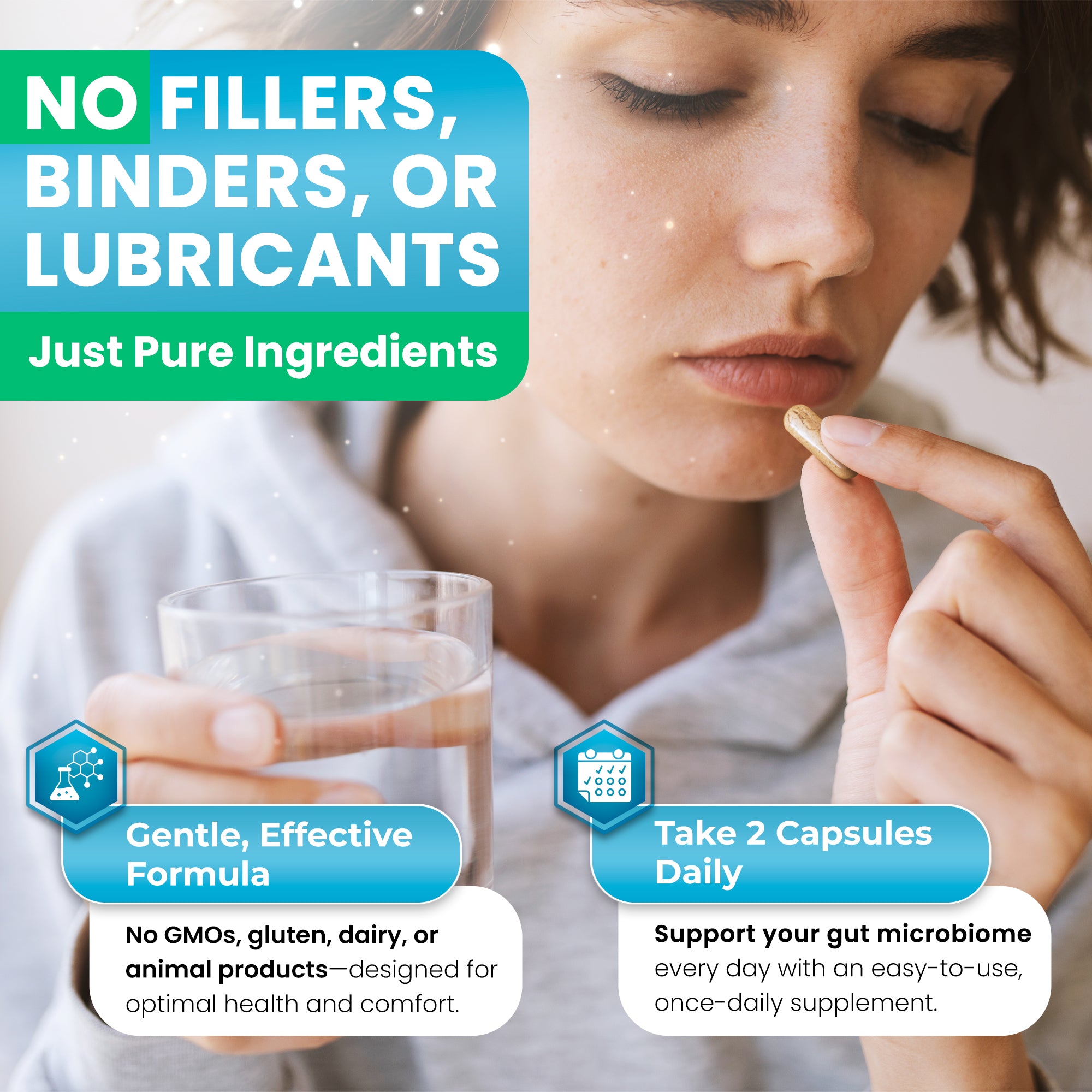
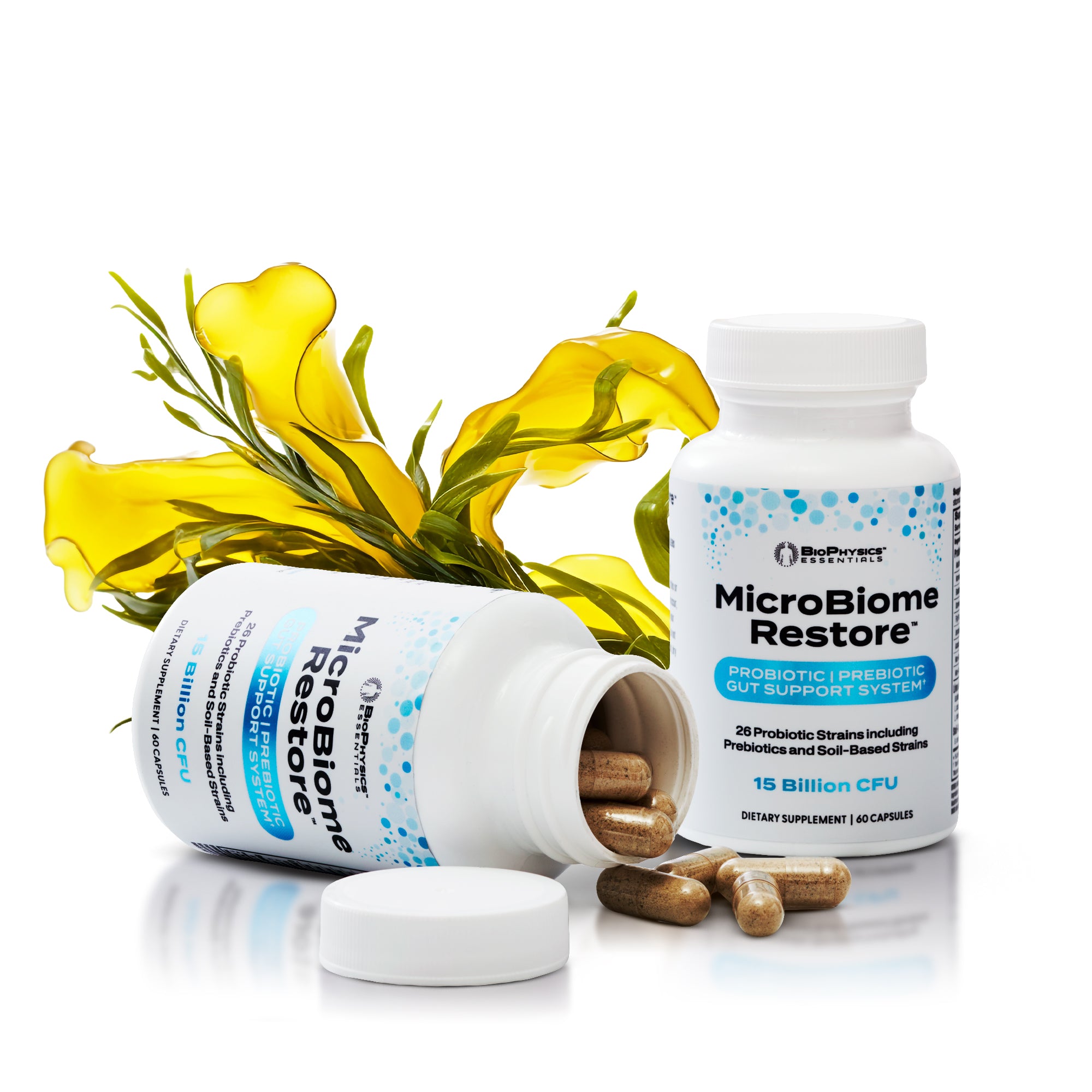
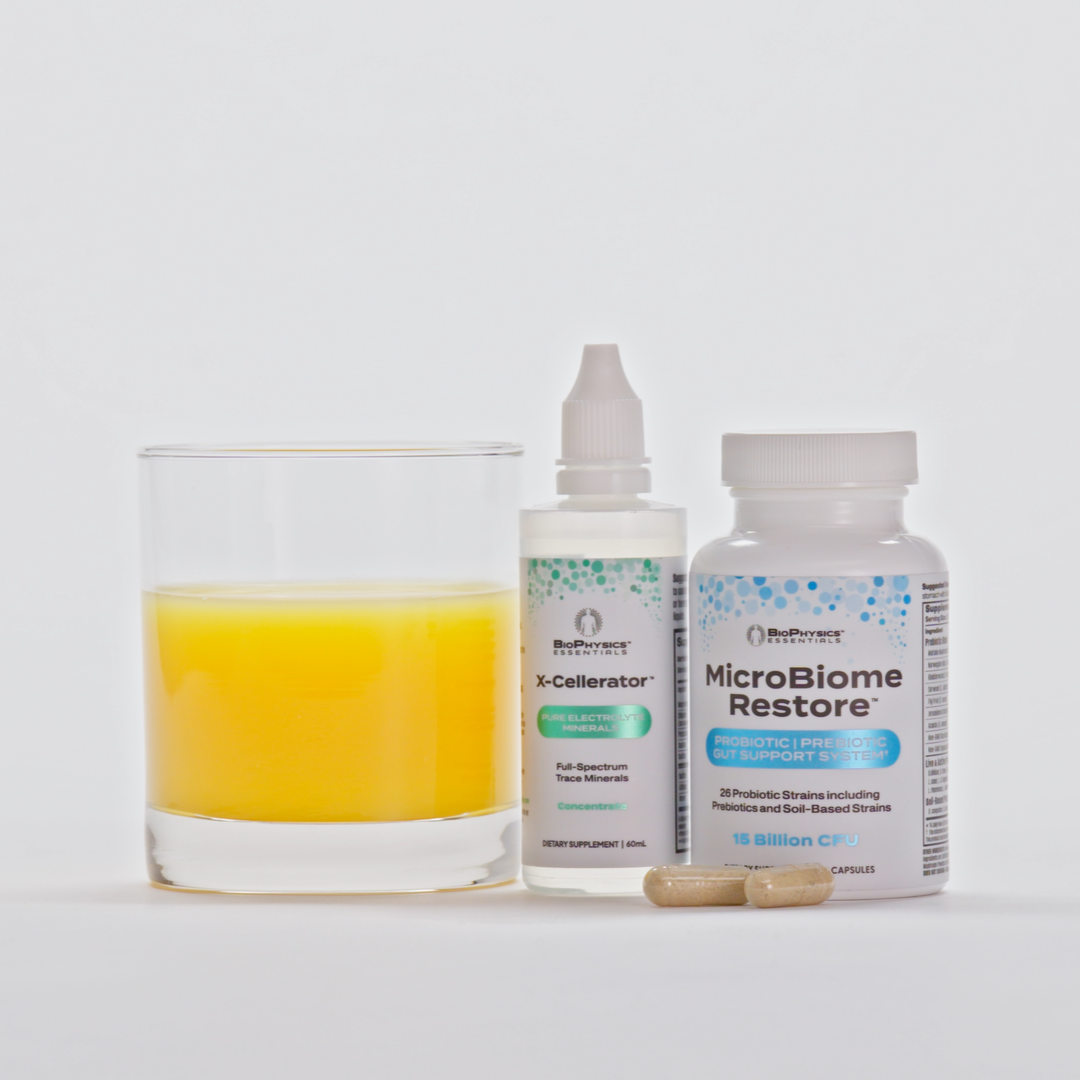

Share and get 15% off!
Simply share this product on one of the following social networks and you will unlock 15% off!